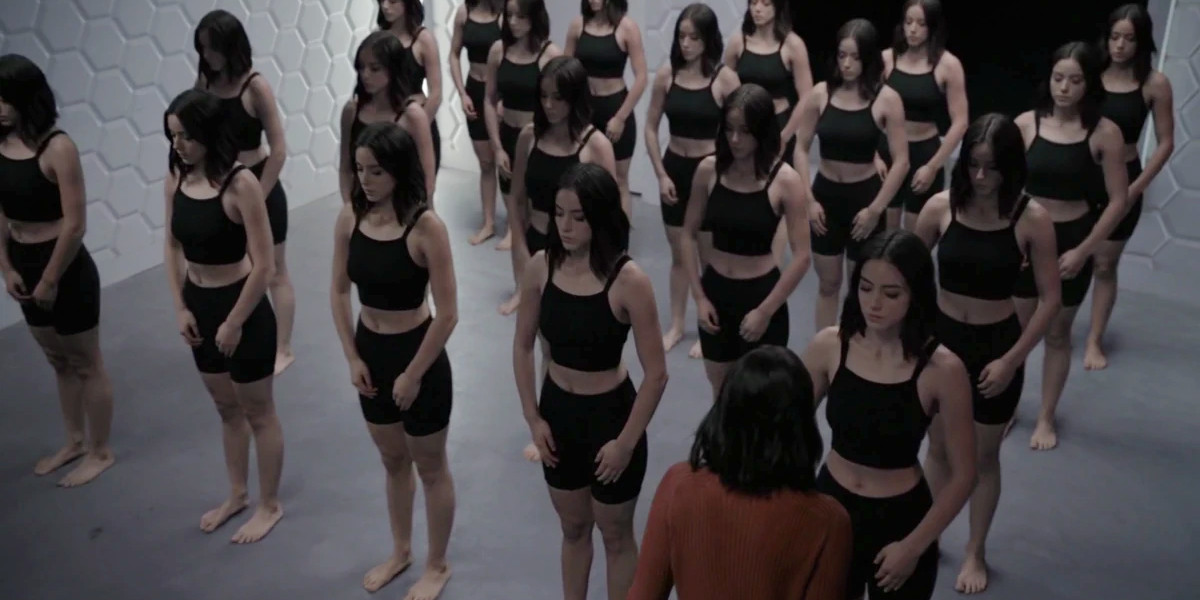‘Marvel’s Agents of S.H.I.E.L.D.’ Did This ‘Secret Invasion’ Plot Better Six Years Ago

Secret Invasion has come to an end after six episodes. While I genuinely enjoyed parts of it, like Olivia Colman’s (rather limited) role in the show, and the relationship between Nick Fury (Samuel L. Jackson) and Talos (Ben Mendelsohn), the series’ core plot was lacking. The Secret Invasion event in the comics is about the uncertainty of knowing who to trust, which heroes have been replaced by a shape-shifting Skrull, and how to deal with a threat you cannot truly perceive. The Secret Invasion show portrayed the Skrull threat in a different manner entirely.
Related: The 61 Celebrities Who Have Played Themselves In The MCU on We Got This Covered
From nearly the first episode, the audience was aware of almost every Skrull and what their covert identities looked like. Between Martin Freeman’s brief Skrull cameo, a few world leader characters we’ve never met before being revealed as Skrulls, and the ultimately unsurprising revelation of Rhodey (Don Cheadle) being an imposter, too, there was very little suspense. This was a disappointing turn of events for a show that boasts suspense as its core premise.
While Secret Invasion only had six episodes in which to tell such a complicated story, I believe this only proves the extent to which Marvel Studios has limited its Disney+ productions. If you can’t tell a story properly in six episodes, should you even tell it at all? Doesn’t that open it up to comparisons to other, similar narratives that fared better in manufacturing that necessary level of fear and paranoia? Marvel itself succeeded in telling a harrowing identity theft-related arc years before Disney+ even existed.
I keep coming back to Marvel’s Agents of S.H.I.E.L.D. because it proves wholeheartedly that Marvel stories can thrive on the small screen. That doesn’t mean I’m forgetting about the masterpiece that was Daredevil, or the many moments of genius in Jessica Jones, The Punisher, Luke Cage, and even—at times—Iron Fist. Those series are all intended for a more mature audience, however, while Agents of S.H.I.E.L.D. operated on the same level of storytelling as the Marvel Cinematic Universe and targeted a similar wide-ranging demographic. Even with certain restrictions in place, Agents of S.H.I.E.L.D. succeeded where Secret Invasion did not.
In S.H.I.E.L.D season 4, Agent Coulson’s team is unknowingly infiltrated by LMDs, otherwise known as Life Model Decoys. These are terrifyingly realistic robotic duplicates, and sometimes even the LMDs themselves are convinced that they are human. It’s incredibly difficult for the heroes to discern fact from fiction. The LMDs, like the Skrulls, have access to their source humans’ memories, and can thus insert themselves seamlessly into relationship dynamics that have been built and nurtured for years, sometimes even decades. Friends who trust each other implicitly begin to doubt their instincts, nearly killing each other in the process.
One Agents of S.H.I.E.L.D. episode in particular demonstrates the paranoia that these LMD copies can foster, and what it feels like to have your identity stolen without warning. Season 4, episode 15 “Self Control” sees our beloved agents begin to turn on each other and lose faith in their judgment. Their fear is palpable, and their sanity is hanging on by a thread.
It’s this heightened level of emotion that was missing from Secret Invasion. Sure, Fury and Rhodey have worked together and respect one another, but there’s no lingering sense of dread; no worry that Fury might, in fact, be shooting the wrong person. Instead, Secret Invasion pivoted to geopolitical suspense and the hypothetical threat of World War III. While those things are believable consequences of Secret Invasion‘s identity theft plot, not enough time was spent on actually building up the Skrulls’ covert invasion. Instead, we’re told that it has slowly been happening since the events of Captain Marvel, and suddenly there are one million Skrulls on Earth trying to take over. As a result, all we’re really left wondering is who was swapped and when, and if their character development has consequently been rendered irrelevant.
On a certain level, the MCU has already done an infiltration plot, and more effectively. H.Y.D.R.A. slowly infiltrated S.H.I.E.L.D. without Fury’s knowledge and did so by hiding in plain sight, threatening to agitate and kill the U.S.’ core allies and instigating—you guessed it—World War III. But that plot was earned and revolved around the emotional core of Steve Rogers’ and Bucky Barnes‘ relationship. Additionally, it was bolstered by Agents of S.H.I.E.L.D.‘s in-depth perspective once the movies were forced to move on.
The events of Secret Invasion should have far-reaching consequences, but it will be hard to integrate such an essential story into the MCU when many casual viewers don’t watch the Marvel shows on Disney+. Instead, it might sadly end up as a footnote in the MCU, resolved too quickly in The Marvels and Armor Wars without tapping into the story’s full potential.
Agents of S.H.I.E.L.D., it is not.
(featured image: ABC)
Have a tip we should know? tips@themarysue.com